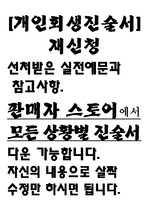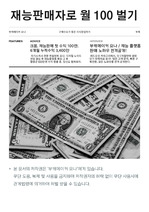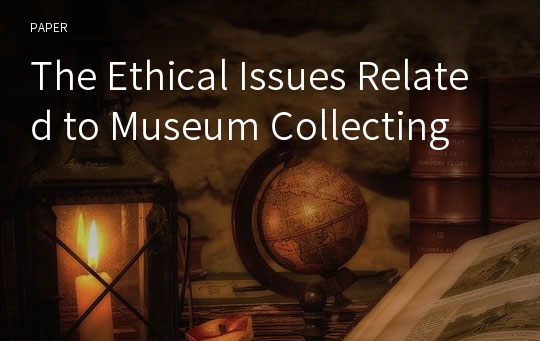The Ethical Issues Related to Museum Collecting
* 본 문서는 배포용으로 복사 및 편집이 불가합니다.
서지정보
ㆍ발행기관 : 한국박물관학회
ㆍ수록지정보 : 박물관학보
ㆍ저자명 : Boa Rhee
ㆍ저자명 : Boa Rhee
목차
IntroductionMuseums and Collecting
Conclusion
References
한국어 초록
Throughout history, acts of war such as bombardment as well as pillage and theft by invadingforces are obvious threats cultural heritage. Especially, the illicit trade in cultural objects is nowwidely recognized as one of the most prevalent categories of intemational crime. Repatriations ofcultural propeπy have already been extensively carried out by legal actions, by diplomaticpressure, by private donations or purchase, and so on since last decade.In the early 1970s, the concept of restitution crystallized around two basic issues: the removal ofsuch cultural property from country of origin during the colonial period and the problem ofcontinuing illicit traffic of cultural property which perpetuates and sometimes exceeds the pastoutflow. Increasing recognition of the significance of the cultural heritage as a source ofinformation, knowledge, identity and continuity, and its important role in elucidating the varioushuman civilization have increased the awareness of the responsibility of museum to preserve thecultural heritage as intact as possible for succeeding generations.Both problems of the illicit trade of cultural objects and the pillage of cultural property haveforced members of the intemational community to act collectively the promulgation andpronouncement of intemational and national instrument and declarations. In this circumstance,the museum community is playing an active role in the protection of cultural objects, not onlybecause of the losses sustained by museums but also because of a concem among museumprofessionals about the threat the illicit trade poses to the world’s cultural heritage. However, suchefforts are not the absolute remedy to relieve the chronic problems around cultural property.From the historical perspective, the evolution of museums in the past two centuries hasinevitably been intertwined with the colonial factors, often disenfranchising and indigenouspeople as prisoner of collections and archives. Indigenous people have survived despite ofcolonialism, imperialism, and cultural genocide. The emphasis is put on the recovery of cultural and national identity through the repatriation of dispersed cultural heritage since people have notonly been despoiled of irreplaceable cultural objects but also robbed by colonization of theircollective memory. In several parts of the world, museums and indigenous people are beginningto negotiate constructive partnerships and work toward readdressing the imbalances in the currentpractices of cultural heritage management. In this context, it is that museums have a fundamentalrole in addressing questions of the erosion of cultural self-esteem and modeling communityrelations strategies to enhance cross-cultural awareness about indigenous cultures. The immediatechallenge for museum is to explore the historical background to the relationship betweenmuseums and indigenous people. This requires museums to address the colonial constructionsof what constitutes “indigenous’ along with the associated discourse of control and dispossession.Such an introspective approach will enable the development of frameworks for a reassessment ofcurrent and past museum professional practice in terms of collecting procedures and methodsAccording to the ICOM Code of Professional Ethics, a museum should not acquire the specimenand object which does not have a legal valid title. In addition, a museum should not acquire inany case the object which is involvedthe unscientific or intemational destruction or damage ofancient monuments or archeological sites, or involved a failure to disc10se the fmds to the ownerand so on.In the last twenty years the museum world has given a great deal of thought to thedevelopment of standards for cataloguing objects in its collection. Although the great concemsabout the protection and preservation of cultural propeπy have developed among museumcommunity, most museums have not made great efforts in revealing the ways of collecting objectsand not had a chance to discuss about the valid legal title of their collection. Museums shouldmove away from the individual’s personal gratification to a community-wide consciousness and aconcem for worldwide issues. No issue is ofgreater importance or calls for more attention than theone relating to identity. What we really needs are the deeper and better understanding of ethicalissues and the feeling of responsibility to protect the world cultural heritage. Betterunderstandingof ethical issues related to collecting will not only give the individual a basis for self-judgementand professional self-respect in macro perspective but also dedicate to the preservationof a global, human heritage as caretakers.As such issues around cultural property such as illicit trade, repatriation, valid legal title,methods of collecting so on are thorny and divisive, only cooperation among museumprofessionals has any hope of offering a resolution. Unless the underlying problems are facedwith sincerity and discussed with positive attitudes, mutual respect, in a spirit of goodwill, theissue of the preseπation and protection of cultural propeπy will go unsolved. It is the right timefor museums and museum professionals to submit to such introspection.영어 초록
Throughout history, acts of war such as bombardment as well as pillage and theft by invadingforces are obvious threats cultural heritage. Especially, the illicit trade in cultural objects is now
widely recognized as one of the most prevalent categories of intemational crime. Repatriations of
cultural propeπy have already been extensively carried out by legal actions, by diplomatic
pressure, by private donations or purchase, and so on since last decade.
In the early 1970s, the concept of restitution crystallized around two basic issues: the removal of
such cultural property from country of origin during the colonial period and the problem of
continuing illicit traffic of cultural property which perpetuates and sometimes exceeds the past
outflow. Increasing recognition of the significance of the cultural heritage as a source of
information, knowledge, identity and continuity, and its important role in elucidating the various
human civilization have increased the awareness of the responsibility of museum to preserve the
cultural heritage as intact as possible for succeeding generations.
Both problems of the illicit trade of cultural objects and the pillage of cultural property have
forced members of the intemational community to act collectively the promulgation and
pronouncement of intemational and national instrument and declarations. In this circumstance,
the museum community is playing an active role in the protection of cultural objects, not only
because of the losses sustained by museums but also because of a concem among museum
professionals about the threat the illicit trade poses to the world’s cultural heritage. However, such
efforts are not the absolute remedy to relieve the chronic problems around cultural property.
From the historical perspective, the evolution of museums in the past two centuries has
inevitably been intertwined with the colonial factors, often disenfranchising and indigenous
people as prisoner of collections and archives. Indigenous people have survived despite of
colonialism, imperialism, and cultural genocide. The emphasis is put on the recovery of cultural and national identity through the repatriation of dispersed cultural heritage since people have not
only been despoiled of irreplaceable cultural objects but also robbed by colonization of their
collective memory. In several parts of the world, museums and indigenous people are beginning
to negotiate constructive partnerships and work toward readdressing the imbalances in the current
practices of cultural heritage management. In this context, it is that museums have a fundamental
role in addressing questions of the erosion of cultural self-esteem and modeling community
relations strategies to enhance cross-cultural awareness about indigenous cultures. The immediate
challenge for museum is to explore the historical background to the relationship between
museums and indigenous people. This requires museums to address the colonial constructions
of what constitutes “indigenous’ along with the associated discourse of control and dispossession.
Such an introspective approach will enable the development of frameworks for a reassessment of
current and past museum professional practice in terms of collecting procedures and methods
According to the ICOM Code of Professional Ethics, a museum should not acquire the specimen
and object which does not have a legal valid title. In addition, a museum should not acquire in
any case the object which is involvedthe unscientific or intemational destruction or damage of
ancient monuments or archeological sites, or involved a failure to disc10se the fmds to the owner
and so on.
In the last twenty years the museum world has given a great deal of thought to the
development of standards for cataloguing objects in its collection. Although the great concems
about the protection and preservation of cultural propeπy have developed among museum
community, most museums have not made great efforts in revealing the ways of collecting objects
and not had a chance to discuss about the valid legal title of their collection. Museums should
move away from the individual’s personal gratification to a community-wide consciousness and a
concem for worldwide issues. No issue is ofgreater importance or calls for more attention than the
one relating to identity. What we really needs are the deeper and better understanding of ethical
issues and the feeling of responsibility to protect the world cultural heritage. Better
understandingof ethical issues related to collecting will not only give the individual a basis for self-judgement
and professional self-respect in macro perspective but also dedicate to the preservation
of a global, human heritage as caretakers.
As such issues around cultural property such as illicit trade, repatriation, valid legal title,
methods of collecting so on are thorny and divisive, only cooperation among museum
professionals has any hope of offering a resolution. Unless the underlying problems are faced
with sincerity and discussed with positive attitudes, mutual respect, in a spirit of goodwill, the
issue of the preseπation and protection of cultural propeπy will go unsolved. It is the right time
for museums and museum professionals to submit to such introspection.
참고 자료
없음"박물관학보"의 다른 논문
 『사립미술관의 현실과 과제』에 대한 토론문 -결론에 대한 추가 및 세부 제언-3페이지
『사립미술관의 현실과 과제』에 대한 토론문 -결론에 대한 추가 및 세부 제언-3페이지 『용산 새 국립박물관의 성과와 과제』에 대한 토론3페이지
『용산 새 국립박물관의 성과와 과제』에 대한 토론3페이지 수집 2세대의 박물관 전시21페이지
수집 2세대의 박물관 전시21페이지 한국의 박물관, 현실과 과제16페이지
한국의 박물관, 현실과 과제16페이지 사립(私立)박물관을 생각한다9페이지
사립(私立)박물관을 생각한다9페이지 용산시대 국립중앙박물관 기획특별전과 전시콘텐츠 마케팅20페이지
용산시대 국립중앙박물관 기획특별전과 전시콘텐츠 마케팅20페이지 강원 영동지역 역사민속계 박물관의 유물관리 개선 방안 연구14페이지
강원 영동지역 역사민속계 박물관의 유물관리 개선 방안 연구14페이지 국립중앙박물관문화재단의 역할과 ‘극장 용’의 마케팅26페이지
국립중앙박물관문화재단의 역할과 ‘극장 용’의 마케팅26페이지 스토리텔링을 적용한 박물관 전시 구조에 관한 연구19페이지
스토리텔링을 적용한 박물관 전시 구조에 관한 연구19페이지 문화재교육의 프로그래밍 방법론에 관한 연구26페이지
문화재교육의 프로그래밍 방법론에 관한 연구26페이지




























